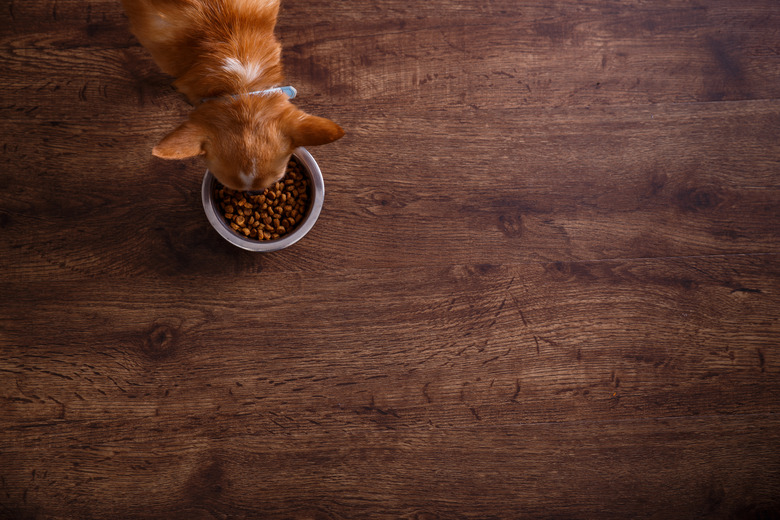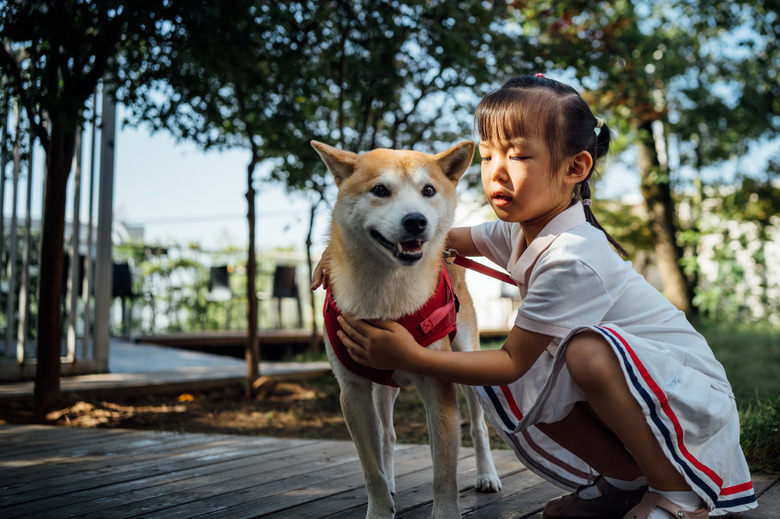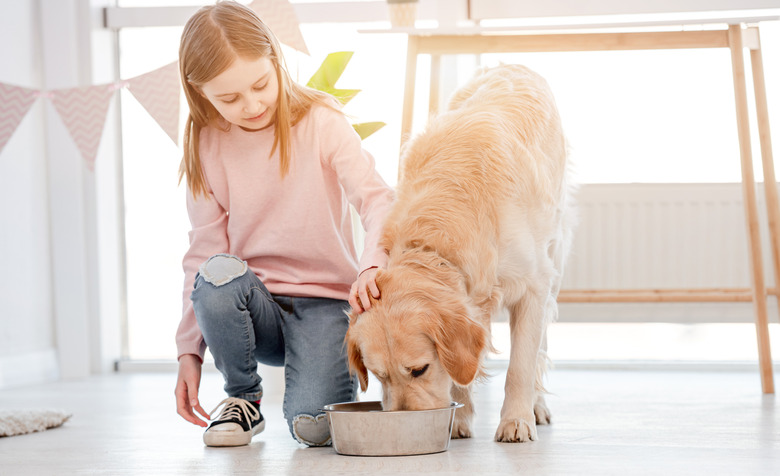What To Do If A Dog Eats Ant Bait Traps?
Some creatures we welcome into our homes, and others we could do without, including ants. An ant infestation can certainly be a headache, so many people opt for poisonous ant bait traps to rid their domiciles of these invasive insects. Sometimes, however, the family dog can be enticed by the sweet smell of the baits used, such as peanut butter, in some store-bought traps. Knowing what to do if your dog chews on or ingests an ant bait trap will help you reduce the likelihood of illness or injury.
What to do if your dog ingests an ant bait trap
What to do if your dog ingests an ant bait trap
While ant bait ingestion is generally nonfatal, the symptoms associated with ingestion can lead to additional medical issues, such as dehydration. As soon as you discover your dog chewing on or eating an ant bait trap, there are several steps you should take to minimize the risk of poisoning or life-threatening intestinal problems.
- Remove the ant trap from the dog and pick up all remaining traps.
- Keep the box in which the traps came to identify the type of poison used.
- Do not panic and call your veterinarian for advice.
- If you cannot reach your veterinarian, call a 24-hour emergency veterinary hospital, the Pet Poison Helpline at (855) 764-7661, or the ASPCA Animal Poison Control Center hotline at (888) 426-4435.
- Do not attempt to induce vomiting or provide any medication without veterinary advice.
- Monitor for symptoms and take your dog to the veterinarian immediately if they show signs of discomfort.
Depending on how much ant poison was consumed, your veterinarian may wish to induce vomiting by using apomorphine, which will help rid your dog's body of lingering poisons and toxins.
Common symptoms if your dog ate ant poison
Common symptoms if your dog ate ant poison
Your dog may experience any of the following symptoms:
- Drooling
- Increased thirst
- Nausea
- Vomiting
- Diarrhea
- Lethargy
- Reduced appetite
- Abdominal pain
- Bloated stomach
Ant bait poison is an effective ant killer, but most dogs need to eat large amounts to suffer from toxicity, so you should not panic. Ant bait traps commonly contain active ingredients and insecticides like boric acid, fipronil, avermectin, and abamectin, but the concentrations are so low that dogs rarely experience side effects after eating one trap. However, you should always consult your veterinarian if your dog has eaten an ant bait trap.
How to know if a dog needs emergency care after ingesting an ant bait trap
How to know if a dog needs emergency care after ingesting an ant bait trap
The most common symptoms experienced after a dog has ingested an ant bait trap are caused by chemicals and oils that bind the bait rather than the poison itself. Because ant bait traps are made of plastic, the real concern when a dog consumes one or more is that they may experience intestinal irritation or blockage. As the plastic can be sharp, especially when chewed, there is also a risk of intestinal perforation, which is a life-threatening emergency.
Symptoms that require urgent veterinary care are:
- Recurrent vomiting
- Bloody diarrhea
- Discomfort or straining when defecating
- Pain
- Panic, anxiety, or distress
Pet-safe ant deterrents for your home
Pet-safe ant deterrents for your home
If an ant infestation is a chronic problem your home faces or if you can count on these insects to find their way inside at a certain time every year, you can still fight them off without risking your dog's health. There are nontoxic and pet-safe options available. Even if you opt for one of these, it is important to ensure that any bait station you use is safely out of the reach of your pets.
Many safe options rely on essential oils, like citrus, eucalyptus, and lemongrass, to control pests, which can be safe for dogs when used in minimal and diluted amounts. Another earth-friendly pest control favorite is diatomaceous earth, which is popular when ridding homes of fleas. When reaching for diatomaceous earth, however, look for varieties labeled "food-grade," which are nontoxic if ingested by dogs.
For an ant infestation inside the home, a homemade spray made from 3 tablespoons of nontoxic dish soap and 16 ounces of water can send ants packing if you target the most heavily invaded area. An ant hill in your yard can result in ants inside your home, but a quick spray with a water hose will usually dissolve most ant homes without harming your pets or the ants.
The bottom line
The bottom line
Ants can be a nuisance in the house, and ant bait traps are commonly used to control them. Dogs can be attracted to the bait and chew or eat the traps if they have access. The poison used in most ant bait traps is in such small amounts that it is unlikely to be dangerous to your dog. The real risk comes from the plastic traps themselves, which can cause obstructions or perforations in the intestines, which can be fatal. Always contact your veterinarian if your dog chews on or eats an ant bait trap.


